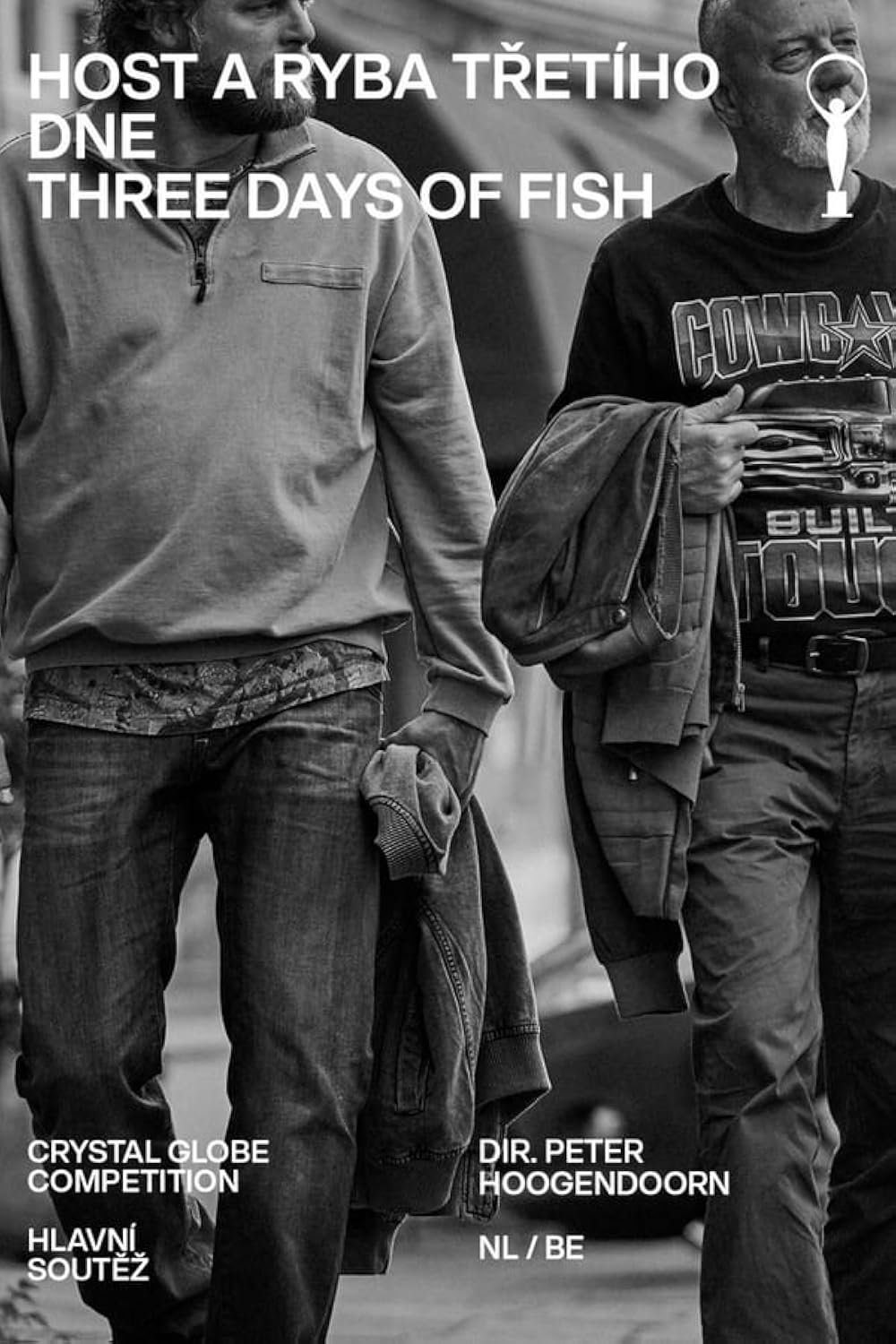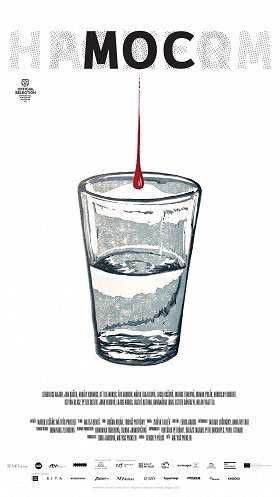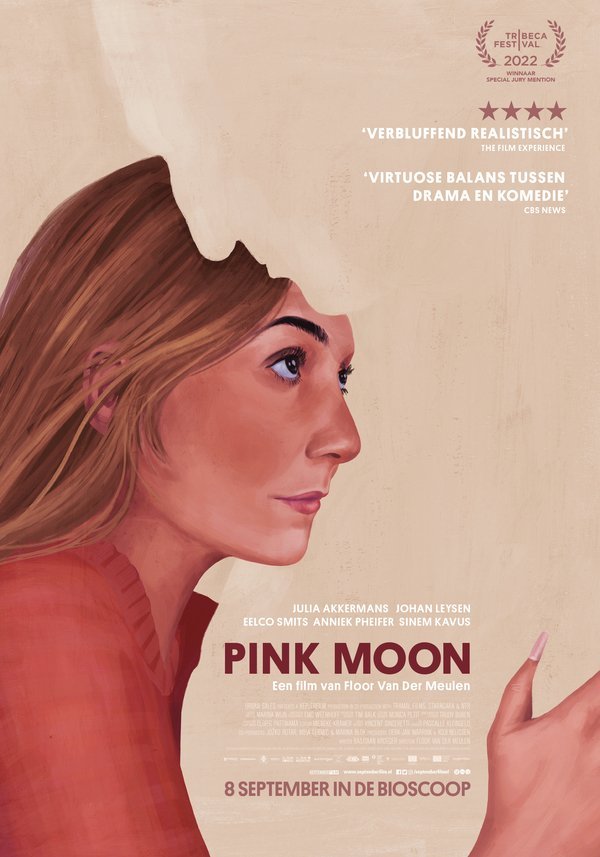Adriatic Audience Award
This program features up to six European films originating from medium and low audio-visual production capacity countries. Selection includes films of renowned quality, films that have been critically acclaimed and had good audience reception, and is limited to narrative fiction features.
Four films in competition for the Audience Award at the 2024 Network of Festivals in the Adriatic Region
In the fourth consecutive edition of the Audience Award program of the Network of Festivals in the Adriatic Region, four European films from countries with medium production capacity were screened.
FLOW, the second animated film by Latvian director Gints Zilbalodis, premiered this year in the Un Certain Regard selection of the Cannes Film Festival, and won two Oscar® nominations in the categories of Best International Feature Film and Best Animated Feature Film. This is one of the most exciting cinematic achievements of the year, which, judging by the reception so far, is equally admired by film professionals and audiences alike. A film that is loved by children and adults alike, and most of all – cat lovers. In a world already devoid of humans, a black cat tries to find what was lost and survive the flood. The 29-year-old director demonstrates exceptional skill in animation and storytelling, embarking on one of the biggest challenges – bringing animals closer to us emotionally as the only characters of the film, without giving them any anthropomorphic traits.
Swedish director Ernst De Geer's film debut, THE HYPNOSIS, is a sharp satire about the acute problem of an entire generation of millennials – the need to be successful, be accepted by society, and at the same time be satisfied with themselves. The film follows a married couple, who are also business partners, trying to develop an app for women's reproductive health. At the same time, the protagonist embarks on hypnotic sessions that are supposed to help her quit smoking, but instead open up a whole new dimension of her character that may be a little more difficult to fit into what society considers acceptable.
THREE DAYS OF FISH, by Dutch director Peter Hoogendoorn comes to us after its premiere at the Karlovy Vary International Film Festival. Variety critic Guy Lodge compares it to the works of Alexander Payne but with an authentic European flair. A layered and subtle portrait of the father-son relationship will captivate audiences with its honesty and immediacy. Brilliantly nuanced characters and humorous replicas, contrasted with a black-and-white photo with soft contrast, make this film exceptional.
Another feature film in competition also comes from the Netherlands and premiered at the Venice Film Festival – MILK, directed by Stefanie Kolk. The film had a rich festival life after its premiere in Venice. The protagonist, dealing with the loss of a baby in the late stages of pregnancy, experiences her grief manifesting physiologically. Instead of stopping altogether, her body will start producing more and more milk, putting the
heroine in a whole new life situation. The film is a unique study of loss and the grieving process from an authentically female perspective.
By collecting the votes of the audience of the Network's five festivals, the Audience Award went to the film FLOW by Gintis Zilbaloidis.
“The Hypnosis”, Ernst De Geer
“Flow”, Gints Zilbalodis
“Milk”, Stefanie Kolk
“Three Days of Fish”, Peter Hoogendoorn
PREVIOUS EDITIONS
Five films in competition for the Audience Award at the 2023 Network of Festivals in the Adriatic Region
This year's edition of Audience Awards at the Network of Festivals in the Adriatic Region brings us five titles competing for the award of 5,000 euros for distribution in the territory covered by the Network.
The films in competition for the award are: Sweet Dreams by Ena Sendijarević, Luxembourg, Luxembourg by Antonio Lukach , Black Stone by Spiros Jacovides, Copenhagen Does Not Exist by Martin Skovbjerg and Power by Mátyás Prikler.
Premiered at the Locarno Film Festival, the new film by the Dutch director with Bosnian-Herzegovinian roots, Ena Sendijarević (Heart of Sarajevo for Best Film 2019 Take Me Somewhere Nice), Sweet Dreams looks at colonialism in a satirical way. After the Dutch patriarch Jan leaves his sugar plantation to his young illegitimate son - the child of his native mistress and housekeeper Sita, the heat on the colonized island in the middle of the Indian Ocean grows unbearable and things start to spiral out of control. According to filmmaker Ena Sendijarević, Sweet Dreams is not a conventional historical drama but a stylized satire about the banality of evil and collapse of European imperialism which successfully avoids clichés and presents reality in a magical, often surreal way.
Luxembourg, Luxembourg by the Ukrainian filmmaker Antonio Lukach premiered last year at the Orizzonti Film Festival in Venice. This interesting comedy follows two brothers in search of their father. There are many beautiful places to die. Luxembourg is not one of them. Beautiful or not, dying in Luxembourg is expensive. When the two brothers hear that their long-absent father is ill in Luxembourg, they embark on a journey to visit him for the last time. Will the dying man they find be the wicked father they remember?
Black Stone by Spiros Jacovides follows a team of documentary filmmakers filming a story about missing civil servants. The two filmmakers meet the desperate and overprotective mother Haroula. Her son is one of the victims, and she is trying to find him. With the help of a Greek taxi driver of African descent and a group of not-so-helpful Antifa activists, the documentarians accompany Haroula in her attempt to find her son and bring him home, even at the cost of discovering what kind of person he really is. The film premiered at the Thessaloniki Film Festival.
Beneath an aesthetically pleasing surface, Martin Skovbjerg's Copenhagen Does Not Exist presents the viewer with a completely radical and unconventional love story (signed by Eskil Vogt, who wrote The Worst Person in the World) that soon turns out to be much more than it seems. After Ida disappears without a trace, her partner Sander willingly surrenders to her father (played by the great Zlatko Buric), who tries to untangle the knots of Ida's mysterious disappearance. What follows is a conversation that is part gruesome confession and part psychotherapy session.
Power by the Slovakian filmmaker Mátyás Prikler is a dark political thriller inspired by a true event that shook Slovakia in 2009, that tries to answer the question of what it really means to have power in a modern society. When a stray bullet kills an innocent young man at an unofficial gathering of prominent political figures, the intelligence service engages agent Marus Steiner to help them cover up the scandal. But after learning who is the actual culprit, Steiner faces a major moral dilemma.
“Power”, Mátyás Prikler
“Luxembourg, Luxembourg”, Antonio Lukach
“Sweet Dreams”, Ena Sendijarević
“Copenhagen Does Not Exist”, Martin Skovbjerg
“Black Stone”, Spiros Jacovides
Adriatic Audience Award 2022
The four charming, moving and suspenseful productions toured some of the most prestigious film festivals such as Cannes and Tribeca, and their skilfully told stories subtly raise questions about life, loss, love and (self) acceptance.
One of the leading Romanian directors, Radu Muntean, in his new film "Întregalde" explores the limits of generosity, empathy and the human need to help others. The story of three volunteers who go to remote Transylvanian villages to deliver necessities to the inhabitants turns into a tense drama, and the challenging situations in the seemingly Samaritan protagonists arouse not so altruistic feelings.
Screened in the program of the Cannes Critics' Week, the feature debut of the French-Portuguese director Cristèle Alves Meira is an unusual, tender and imaginative coming-of-age film that combines magical realism and elements of horror with family drama. "Alma Viva" is inspired by Portuguese folklore and beliefs, and in the story of a little girl who, while spending the summer with her mother's family in a small mountain town in northeastern Portugal, faces the death of her beloved grandmother. Collision between modernity and traditional elements are interwoven within the film, which includes themes such as spirituality and death, family and local community, belonging and non-acceptance.
"Pink Moon" by the Dutch director Floor Van Der Meulen deals with the loss of loved ones. A touching portrait of a family consisting of 74-year-old Jan and his two adult children, Iris and Ivan, in a completely unsentimental way, devoid of moralizing, asks complex questions about life and the possibility of deciding its end. When Jan confronts his children with his own decision to end his life on the eve of his next birthday, Iris and Ivan are forced to face loss and grief even before their father's death occurs.
Death is also the driving event in the Georgian film "Wet Sand" directed by Elena Naveriani, which takes the heroine Moe from Tbilisi to a small village on the shores of the Black Sea in order to organize her grandfather's funeral. However, there she learns that her grandfather in a seemingly peaceful, idyllic town, carried the burden of being an outsider for the sake of a 22-year-long love affair. Gia Agumava, a philologist for whom this is his first role on the big screen, won an award in Locarno for his role in this melancholic, multigenerational queer story about hidden love and the right to happiness in a toxically intolerant social environment.
“Întregalde”, Radu Muntean
“Alma Viva”, Radu Muntean
“Pink Moon”, Floor Van Der Meulen
“Wet Sand”, Elene Naveriani















